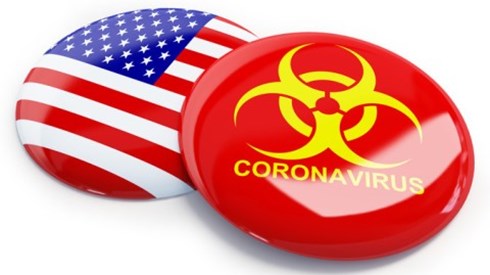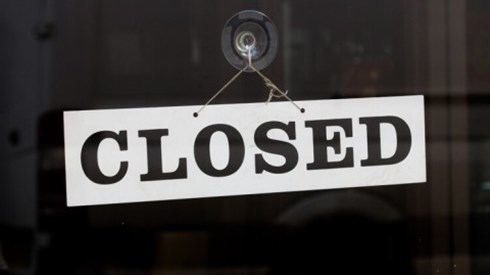COVID-19's Possible Impacts on Captive Insurers Are Varied

March 18, 2020

Captive insurance companies will no doubt feel the impacts of the novel coronavirus pandemic and the COVID-19 disease it causes, both in the near term and possibly in the future, as captive owners look to close holes the outbreak is revealing in insurance programs.
"I talked about this a little bit last week with one of our consulting actuaries, who said all sorts of possibilities can happen because of this," said David F. Provost, deputy commissioner in the Captive Insurance Division of Vermont's Department of Financial Regulation. "It will have a serious impact."
Companies writing medical stop-loss in their captives could potentially experience losses either on an aggregate or individual loss basis, he said.
"Obviously, the concern is if you've got medical stop-loss and you have a number of covered lives that have to go to hospitals for lengthy stays, it gets very expensive," said Brady Young, president and CEO of Strategic Risk Solutions (SRS).
Mr. Young said most of the group captive companies writing stop-loss coverage that SRS works with have layers of coverage above the layer in the captive for both large individual losses and aggregate losses, so he's not worried about those captive insurance companies' solvency. "The insurers that provide the aggregate cover might be nervous," he said.
"My take on the stop-loss market is that right now the impact on the stop-loss market is negligible," said Michael Maglaras, principal at Michael Maglaras & Company. "However, if we become Italy, then the impact will be profound."
Healthcare companies will likely also see their exposures increase as a result of the COVID-19 pandemic.
"The hospitals are going to have much more exposure," Mr. Provost said. This includes general liability claims, professional liability claims, or workers compensation claims from workers forced to take on unaccustomed tasks because facilities are short-staffed.
"One of the things we've been considering is [whether] we need to have a talk with our nursing home captives," the Vermont regulator said. "We have a lot of nursing home captives, and they write professional liability in terms of medical malpractice as well as slip and fall, general liability. There're bound to be some lawsuits coming out of this."
Mr. Maglaras said the question of whether COVID-19 will lead to a deep professional liability issue for healthcare captive insurance companies is an open one, "but our guts say yes." There's the potential for allegations that healthcare providers didn't take sufficient steps to keep someone infected with the coronavirus from entering the facility, allowing patients to be exposed. "We believe that this is a pending potential crisis," he said.
Another issue facing many captive owners as a result of the COVID-19 outbreak is around business interruption coverage.
"A lot of our clients have business interruption, extra expense first-party coverages in their captives," Mr. Young said. "But for most of the clients, the trigger for the coverage is something more sudden and accidental—a fire, a hurricane, an earthquake." But business interruptions because employees are told to stay home because of COVID-19 aren't likely to be covered under a traditional property business interruption or contingent business interruption coverage.
"The good news is the captives don't typically have that risk, they don't have that financial exposure," Mr. Young said. "The bad news is that effectively companies impacted by this don't really have any coverage or any recourse."
Mr. Young noted that after the September 11, 2001, terrorist attacks, some businesses—especially those in tourism—recognized the impact of their business slowing down and broadened the terms of their business interruption coverages to address the risk. "But that's not the norm," he said.
Mr. Maglaras said he sees the questions around the coronavirus's impact on captive insurance business coming in three waves. "The first wave is 'What do you mean I don't have any coverage for business interruption losses?'
"The second wave is going to be a health insurance impact if we don't contain and control the virus," he said. "If we become a place where we have 50,000 cases, it will have a monumental impact on the cost of reinsurance, the cost of stop-loss in captives, the ability of captives to absorb it.
"The third wave will be as the allegations start to roll in that you did not properly screen, you did not properly treat, other people became contaminated," Mr. Maglaras said. "We've already seen the beginnings of that. I have one claim this morning that has presented itself as a direct result of a family member alleging in one of my senior care facilities with a captive that improper screening caused her mother's death."
The impact of such litigation will only be apparent over time, Mr. Maglaras said, as plaintiffs' attorneys build cases.
As with other industries, working remotely is becoming the norm in the captive industry as social distancing is stressed as an essential element of the strategy to contain COVID-19. SRS announced that it's closing its offices effective March 23, except for essential staff, and will be conducting business online.
Mr. Maglaras said he's seeing a similar situation with his clients. "I am supposed to be going to a claims committee meeting of one of my hospital captives," he said. "We're going to do it by telephone."
Mr. Provost said Vermont's Captive Insurance Division is also working from home. "Most of my staff works at home anyhow, but we basically said, 'You're going to stay at home,'" he said. Likewise, initial captive formation meetings have been increasingly conducted by phone, but that will be the norm for the foreseeable future. "We're in the process of half a dozen right now, but those will all be, 'Nice to talk to you, we'll meet you face to face at some point in the future,'" he said.
Mr. Provost said it might also be necessary to conduct required captive board meetings virtually this year. "We'll certainly be flexible and likely grant waivers and communicate that information to the managers ahead of time," he said.
Going forward, businesses might find new uses for their captive insurance companies as a result of their experience with the impact of the COVID-19 pandemic.
"That's the beauty of the industry. It's very innovative, and the folks who are involved in this are very innovative," said Richard Smith, president of the Vermont Captive Insurance Association. "So, I think we will see some discussion of how a captive can be utilized in a situation like this in the future.
"For me, and for a lot of folks, this is sort of new territory," said Mr. Smith. "But this is what captives do. People will ask, 'What can we do with our captive?' Are there things we can do to buffer the captive and its owners from these kinds of situations going forward?"
March 18, 2020

